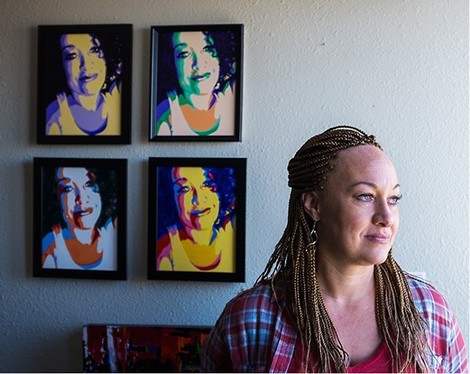Your podcast discovery platform
Curious minds select the most fascinating podcasts from around the world. Discover hand-piqd audio recommendations on your favorite topics.

piqer for: Global finds Globalization and politics
Rosebell is a multimedia communications specialist, journalist and award-winning blogger with experience in gender, peace and conflict. Currently works on public interest litigation for gender justice with focus on Latin America -Africa learning. Rosebell holds a Masters in media, peace and conflict studies from the University for Peace in Costa Rica. She is a World Economic Forum Young Global Leader.
The Heart Of Whiteness: Ijeoma Oluo Interviews Rachel Dolezal
Rachel Dolezal is not going away. The white woman "identifies as black" in the same way a people woke up and claimed a piece of the universe, colonised it, spoke for it over and over and with time it became theirs.
Well, this week Dolezal decided to visit the "motherland", and she choose "right" - South Africa (racial history and apartheid). There she participated in the Quest for a Non-Racial South African Society dialogue in Johannesburg.
In February, Rachel Dolezal had changed her name to Nkechi Amare Diallo. Nkechi is also the name of writer Ijeoma Oluo's sister. Having been hesitant to go back to Dolezal's story, Ijeoma writes on how, as a black woman in America who writes about race and the intersectionality of social oppression and dominance, she couldn't escape her - at least one more time.
Her interview touches on the origins of Dolezal's obsession with blackness, how she tries to pass off as black while still living with white privilege, and her inability to understand why black people whose identity she claims reject her.
Black women's identity is at the centre of the Dolezal story and this read is so powerful because Ijoema isn't just well armed with black, African history but lived experiences of a black woman who grew up in a majority white town.
Ijeoma's piece divulges why Dolezal is doing nothing new by taking away from black people, and how it is the very same white supremacy which she claims to run away from that feeds her mentality and makes it possible for Dolezal to be a story and sign book deals.
"By turning herself into a very, very, very, very light-skinned black woman, Dolezal opens herself up to be treated as black by white society only to the extent that they can visually identify her as such, and no amount of visual change would provide Dolezal with the inherited trauma and socioeconomic disadvantage of racial oppression in this country ... And it is white supremacy that told an unhappy and outcast white woman that black identity was hers for the taking."
